

Choosing the right trailer axle can make all the difference in your hauling experience. Whether you’re transporting equipment, vehicles, or other heavy loads, understanding the distinctions between a single axle vs. double axle trailer is essential.
This guide will walk you through the key differences, benefits, and considerations to help you make an informed decision. Discover which axle configuration best suits your needs and ensures safe, efficient, and reliable towing every time.
When considering a single-axle trailer vs. a double-axle trailer, it’s essential to recognize the distinct advantages of a single-axle trailer. Due to their simplicity and efficiency, single-axle trailers are often the go-to choice for many.
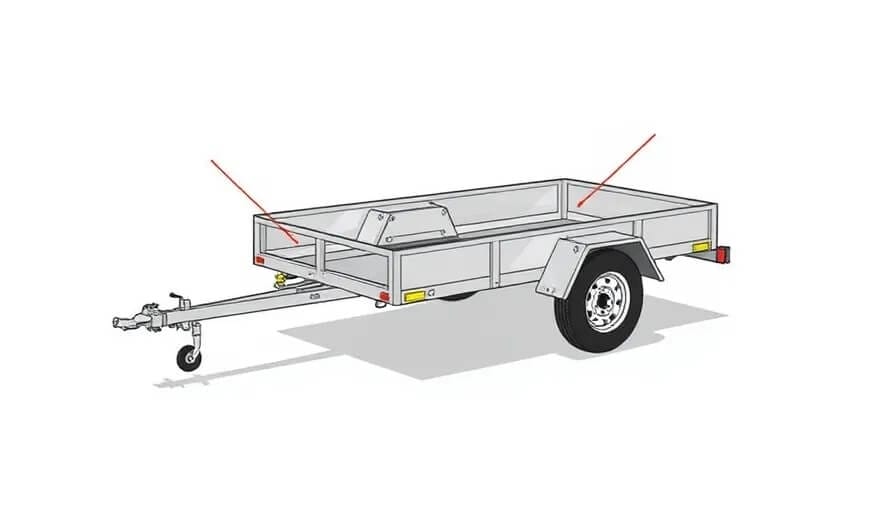
A single axle trailer features one axle located at the rear of the trailer. This design typically supports lighter loads and is constructed to balance functionality and ease of use.
The simplicity of a single axle system makes it a popular choice for those who require a trailer for occasional or light-duty tasks.
One of the most significant benefits of a single axle trailer is its cost-effectiveness. Single axle models generally come with a lower initial purchase price than double axle trailers. This makes them an attractive option for individuals and businesses seeking to minimize upfront expenses without compromising essential features.
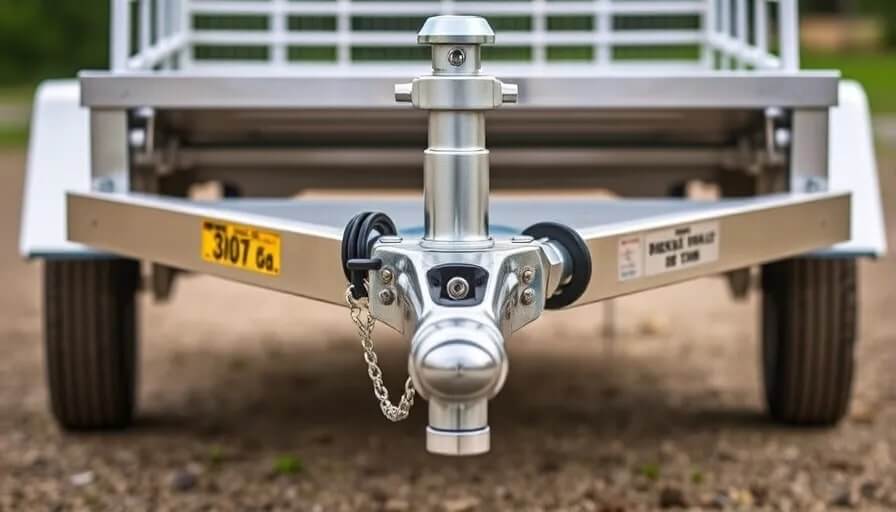
Single axle trailers excel in maneuverability, especially in tight spaces and urban environments. Their lighter weight and more straightforward design make navigating through narrow roads, parking areas, and congested traffic easier. This enhanced maneuverability can save you time and reduce the stress of hauling in busy areas.
The lighter weight of single axle trailers translates to better fuel efficiency. With less mass to carry, your towing vehicle consumes less fuel, leading to cost savings over time. Additionally, the reduced weight can result in less wear and tear on your vehicle, extending its lifespan and maintaining its performance.
Single axle trailers are ideal for lighter loads and casual hauling. Whether transporting small equipment, recreational vehicles, or household items, a single axle trailer provides the necessary capacity without the added complexity of a double axle system. This makes them perfect for weekend projects, small businesses, and personal use.
When it comes to the single-axle vs. double-axle trailer debate, double-axle trailers stand out for their ability to handle more demanding hauling tasks. A double-axle trailer might be the better choice if your transportation needs involve heavy or bulky loads.
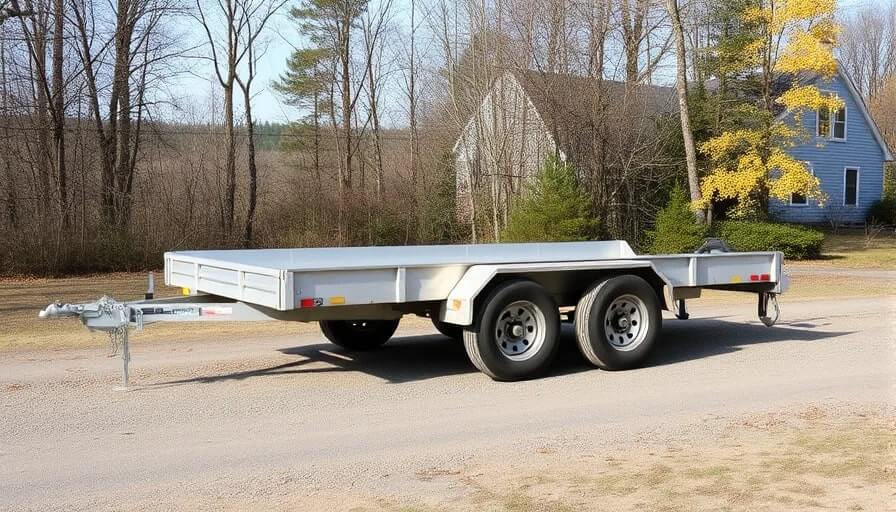
A double axle trailer features two axles positioned closer together, typically at the rear of the trailer. This configuration allows for a higher load capacity and improved stability than single axle trailers.
The robust design is built to support larger and heavier loads, making it suitable for a wide range of applications.
One of the primary advantages of a double axle trailer is its increased load capacity. With two axles, these trailers can handle significantly more weight, making them ideal for transporting heavy machinery, large vehicles, or substantial goods.
This enhanced capacity ensures you can safely and efficiently transport your items without overloading the trailer.
Double axle trailers offer enhanced stability, reducing the risk of swaying and improving overall balance during transport.
This stability is particularly beneficial when hauling long or unevenly distributed loads, as it minimizes the chances of accidents and ensures a smoother ride. Enhanced stability improves control and handling, especially at higher speeds or on rough terrain.
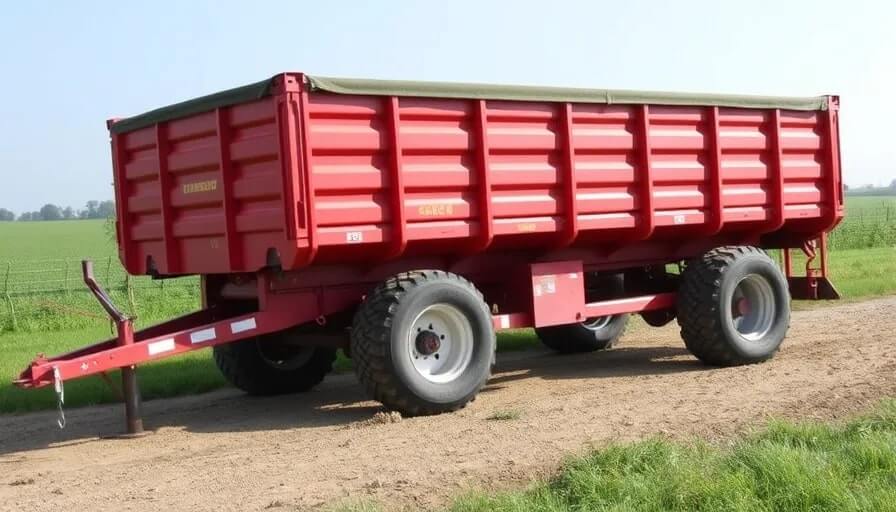
Built to withstand more demanding hauling conditions, double axle trailers are known for their durability and longevity.
The reinforced structure and additional axles distribute weight more evenly, reducing stress on individual components and extending the trailer’s lifespan. Double axle trailers are a reliable investment for those who frequently transport heavy or bulky items.
Double axle trailers are perfect for commercial use and large-scale projects. Whether in construction, agriculture, or any industry requiring substantial hauling capabilities, a double axle trailer provides the strength and capacity needed to get the job done.
Their versatility makes them suitable for transporting recreational vehicles, livestock, and large loads.
Understanding the critical differences between a tandem vs. single axle trailer is essential for making the right choice. Let’s break down the main factors that set these two types apart.
The most apparent difference in a dual axle vs. single axle trailer lies in load capacity. Single axle trailers typically support up to 1,000 to 4,000 pounds, while double axle trailers can handle up to 5,000 to 10,000 pounds. Some can even be higher.
This increased capacity makes double axle trailers suitable for heavier and bulkier loads, providing the necessary strength and support for demanding tasks.
Double axle trailers offer superior stability and handling compared to single axle models. The additional axle distributes weight more evenly, reducing sway and enhancing control during transport. This improved stability is crucial when towing on highways or uneven terrains, ensuring a safer and more comfortable driving experience.
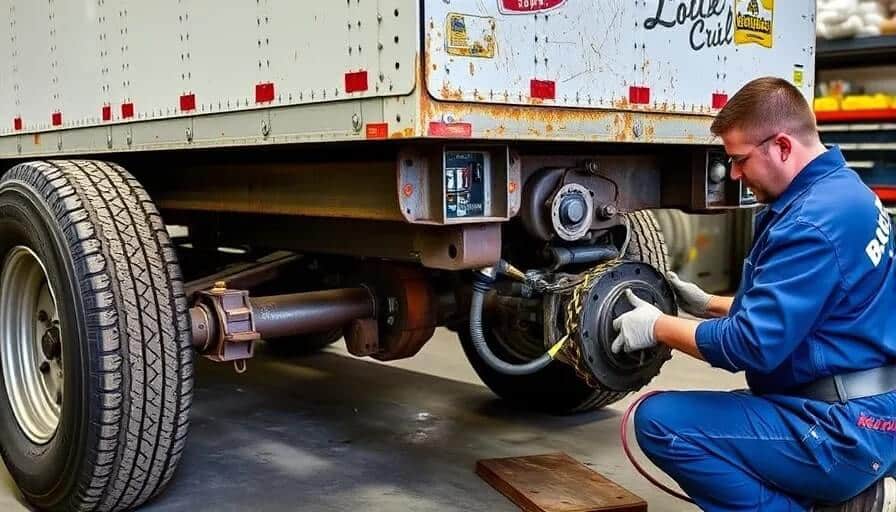
Maintenance needs vary between single and double axle trailers. Single axle trailers are generally more straightforward and require less maintenance, making them easier to manage for occasional users.
In contrast, double axle trailers have more components, such as additional axles and suspension systems, which may require frequent inspections and upkeep to ensure optimal performance.
When comparing the single vs. double axle trailer options, cost differences are significant. Single axle trailers are more affordable upfront, making them a budget-friendly choice for those with limited funds or lighter hauling needs.
While more expensive initially, double axle trailers offer more durability and load capacity, potentially providing better long-term value for heavy-duty users.
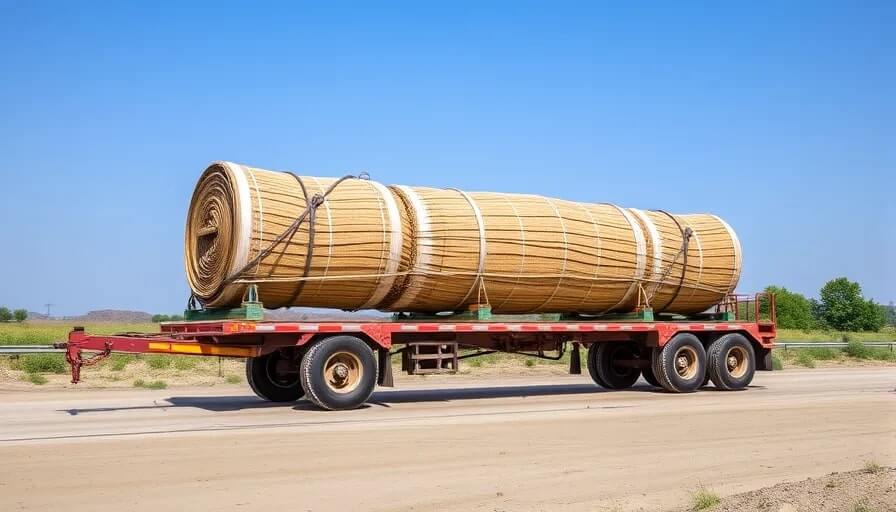
Choosing between tandem axle vs. dual axle trailers depends mainly on your hauling requirements. Single axle trailers are ideal for light to medium loads and are perfect for personal use or small businesses.
On the other hand, double axle trailers are better suited for heavy-duty applications, commercial use, and large-scale projects that demand higher load capacities and enhanced stability.
Load capacity and proper weight distribution are critical factors when deciding between a double axle trailer vs. single axle. Understanding how each axle type affects these aspects can help ensure safe and efficient towing.
The number of axles directly influences a trailer’s load capacity. Single axle trailers, with one axle, are limited in how much weight they can safely carry. In contrast, double axle trailers, with two axles, can distribute weight more effectively, allowing for heavier loads without exceeding the trailer’s limits.
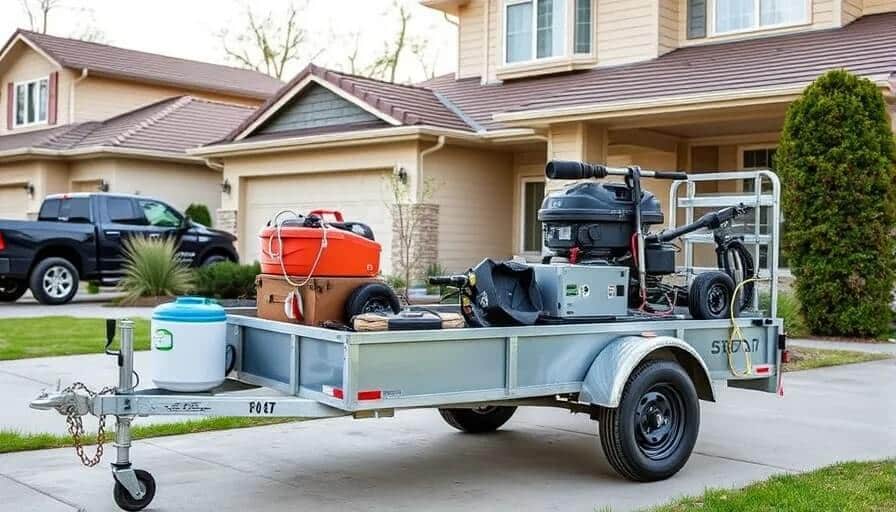
Proper weight distribution is essential for safe towing, regardless of whether you choose a single or double axle trailer.
Ensuring that the weight is evenly spread across the trailer helps maintain balance, reduces the risk of swaying, and minimizes strain on your towing vehicle. Misaligned weight distribution can lead to handling issues, increased tire wear, and potential accidents.
The axle configuration of your trailer impacts the performance of your towing vehicle. Single axle trailers, being lighter, place less strain on your vehicle’s engine, brakes, and suspension, leading to better fuel efficiency and reduced wear and tear.
Double axle trailers, while heavier, require a more robust towing vehicle capable of handling the increased load without compromising performance or safety.
When comparing a single or double axle trailer, maneuverability and handling are vital considerations that can significantly affect your towing experience.
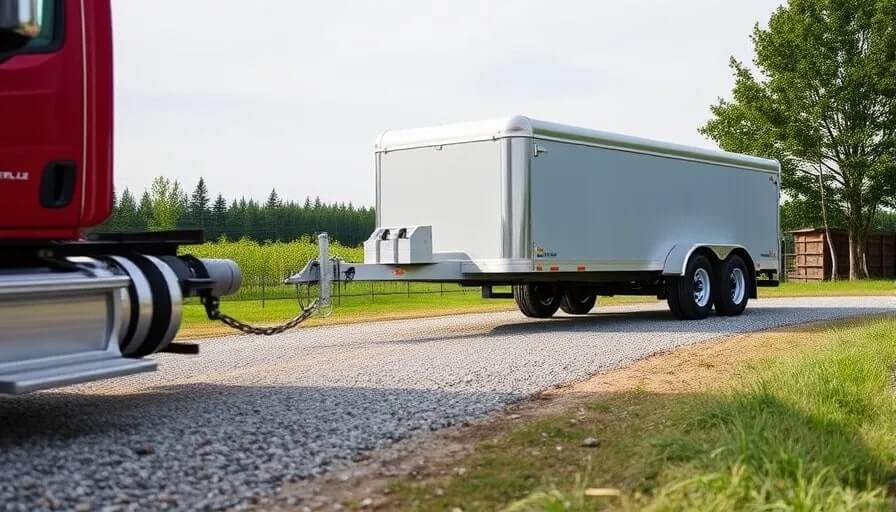
Single axle trailers generally have a tighter turning radius, making them easier to navigate through sharp turns and confined spaces. This is particularly beneficial in urban settings, narrow roads, and tight parking areas where maneuverability is essential.
With their longer wheelbase, double axle trailers require more space to turn, which can be challenging in similar scenarios.
The driving experience differs between single and double axle trailers. Single axle trailers offer a more responsive and agile driving feel, allowing quicker adjustments and easier handling.
Due to their added length and weight, double axle trailers provide a more stable ride but may feel less responsive, especially when making sudden maneuvers or navigating tricky terrain.
The type of terrain you frequently encounter plays a role in deciding between a single- and double-axle trailer. Single-axle trailers perform exceptionally well on paved roads and flat surfaces, where their lightweight and maneuverability shine.
With enhanced stability and higher load capacity, double axle trailers are better suited for uneven terrains, gravel roads, and off-road conditions, providing the necessary support and balance for challenging environments.
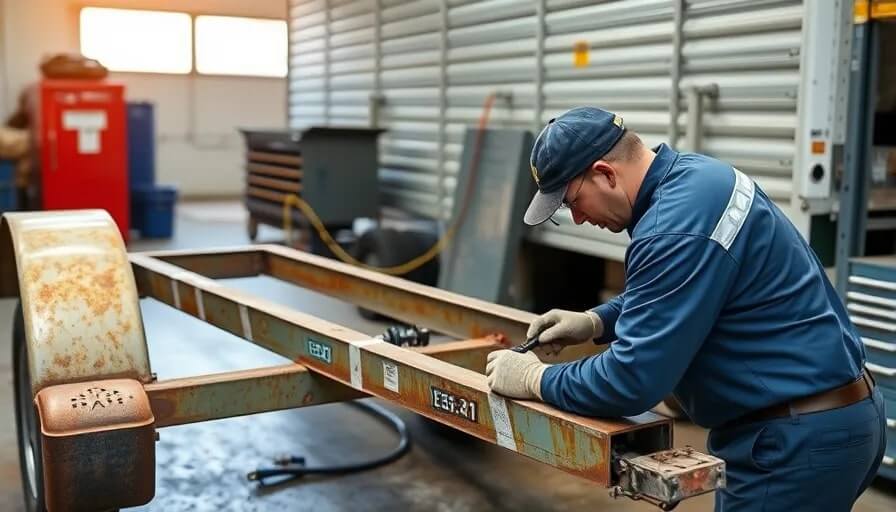
Maintaining your trailer is essential for ensuring its longevity and performance. Maintenance and durability are important factors to consider when evaluating a tandem axle trailer vs. single one.
Single axle trailers typically require less maintenance due to their simpler design and fewer components. Routine tasks include regular tire inspections, brake checks, and securing the hitch and connections.
With their additional axle and suspension systems, double axle trailers demand more comprehensive maintenance. This includes inspecting both axles, checking for alignment issues, and maintaining the suspension components to ensure optimal performance.
Double axle trailers are more durable and have a longer lifespan than single axle models. The dual axle setup distributes weight more evenly, reducing stress on individual components and minimizing wear and tear.
This increased durability makes double axle trailers a worthwhile investment for those who frequently haul heavy loads or operate in demanding conditions.
Single and double axle trailers can encounter common issues, but the nature of these problems may differ. Single axle trailers may face tire wear and suspension wear issues, while double axle trailers might experience axle alignment problems and more complex suspension issues.
Regular inspections and timely maintenance can help identify and address these problems before they escalate, ensuring your trailer remains in top condition.
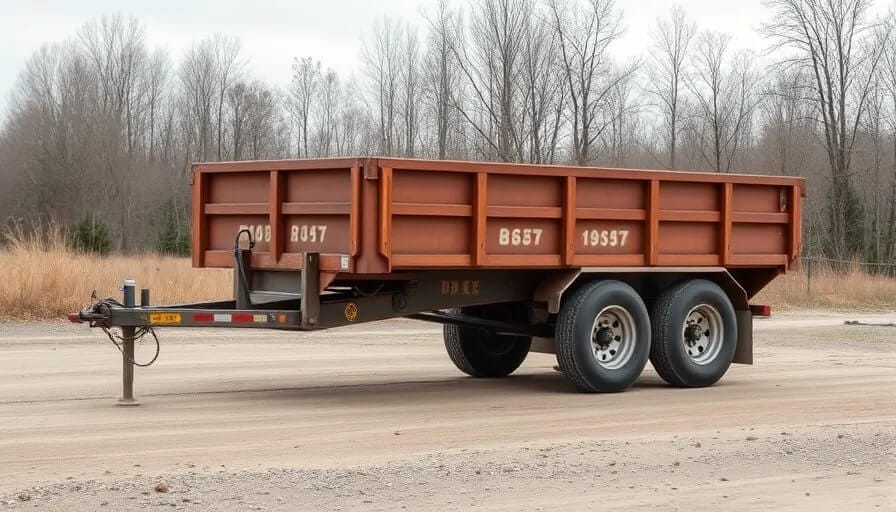
When deciding between a single vs. double axle trailer, it’s essential to consider both the initial investment and long-term expenses to determine which option offers the best value for your needs.
Single axle trailers come with a lower purchase price than double axle trailers. This makes them attractive for those with budget constraints or who only require a trailer for light to medium-duty tasks.
While more expensive upfront, double axle trailers offer higher load capacities and greater durability, which can justify the additional cost for heavy-duty users.

Operating costs for a single axle trailer vs. double differ primarily because of their weight and maintenance requirements. Single axle trailers, being lighter, typically result in better fuel efficiency and lower fuel costs over time. They also tend to have fewer maintenance needs, reducing ongoing expenses.
On the other hand, double axle trailers may incur higher fuel costs because of their increased weight and require more frequent maintenance, leading to higher long-term operating expenses.
Assessing which trailer type offers better long-term value depends on your specific usage. Single axle trailers provide excellent value for those with lighter hauling needs and limited budgets, offering a cost-effective solution without unnecessary features.
Although more expensive, double axle trailers deliver superior performance, higher load capacities, and enhanced durability, making them a valuable investment for users requiring heavy-duty hauling capabilities and long-term reliability.
Selecting the appropriate axle configuration is a pivotal decision that directly impacts your hauling endeavors’ efficiency, safety, and overall performance.
Whether you’re weighing the options between a single axle trailer vs. double axle or considering other configurations like tandem axle vs. single axle, understanding your specific needs and circumstances is essential. Here’s how you can determine the best axle setup for your requirements.

Begin by thoroughly evaluating the types and frequencies of loads you intend to transport. A single axle trailer may be sufficient if your hauling needs involve occasional trips with lighter loads.
Single axle trailers are ideal for transporting smaller equipment, recreational vehicles, or household items, providing the necessary capacity without additional axles’ added complexity and cost.
However, if you regularly transport heavy or bulky items, such as construction materials, large vehicles, or substantial goods, a double axle trailer offers the enhanced load capacity and stability required for these demanding tasks.
Ensuring that your towing vehicle is compatible with your chosen trailer is crucial for safety and performance. Single axle trailers are lighter and easier for smaller vehicles to tow, making them a perfect match for compact trucks or SUVs with lower towing capacities.
On the other hand, double axle trailers, which are heavier and designed for greater load capacities, require a more robust towing vehicle with higher towing ratings.
Check your vehicle’s towing specifications, including its Gross Vehicle Weight Rating (GVWR) and Tongue Weight, to ensure it can safely handle the trailer you intend to use. Mismatched towing capabilities can lead to decreased vehicle performance, increased wear and tear, and potential safety hazards on the road.
When choosing between a single vs. tandem axle trailer, it’s wise to consider your future hauling needs to ensure your investment remains viable over time.
If you anticipate that your transportation requirements will grow or evolve, opting for a double axle trailer might be more prudent. The higher load capacity and enhanced stability of double axle trailers provide greater flexibility. They allow you to handle larger or more varied loads without prematurely upgrading your equipment.
This forward-thinking approach can save you money in the long run by avoiding purchasing a new trailer as your needs expand.
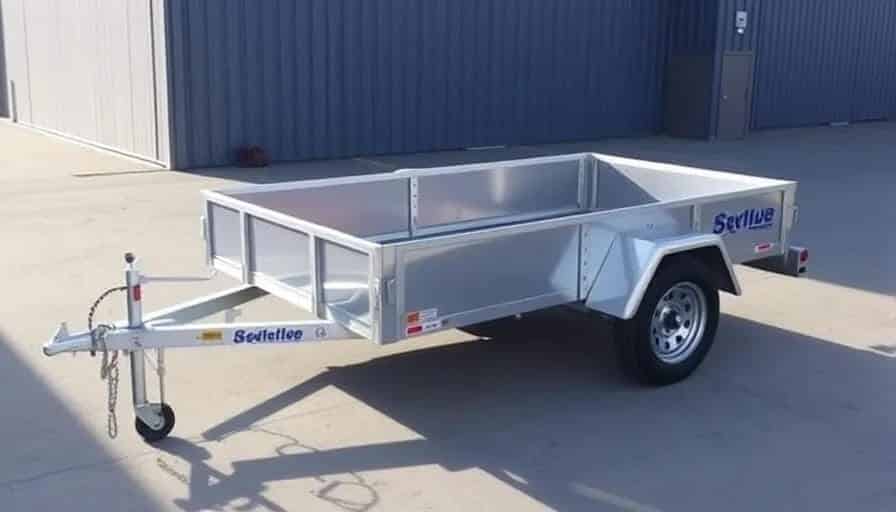
While the initial purchase price is essential, evaluating the long-term costs associated with single vs. dual axle trailer configuration is necessary. Single axle trailers generally come with a lower upfront cost and can be more affordable, making them an attractive option for those with budget constraints or lighter hauling needs.
Conversely, double axle trailers, although more expensive initially, may offer better long-term value through their increased durability, higher load capacity, and reduced need for frequent upgrades. Assess your budget for the immediate purchase and ongoing expenses such as fuel efficiency, maintenance, and potential repairs.
At Millennium Trailers, we understand the importance of choosing the correct axle for your single axle vs. tandem axle trailer needs.
We offer a comprehensive range of axle options, ensuring you find the perfect double axle vs. single axle trailer configuration for any hauling requirements, whether you need a lightweight single axle or a robust double axle setup.
Our commitment to quality and reliability means we use only top-grade materials and adhere to strict manufacturing standards, ensuring our axles perform flawlessly.
Our team of experts is dedicated to providing exceptional customer support, guiding you through every step, from selection to maintenance. We pride ourselves on our competitive pricing, offering you the best value without compromising quality.
When you pick Millennium Trailers, you invest in durability, performance, and outstanding service. Contact us today to explore our extensive range and find the ideal axle solution for your trailer needs.
Millennium Trailers is your trusted partner for high-quality trailers at unbeatable prices. Serving all 50 states, we’ve delivered over 5,000 trailers nationwide.
Established in 1998, we’re a company dedicated to meeting your hauling needs with excellence. Whether it’s cargo trailers or custom living quarters, we provide a wide range of options to suit your requirements. Our knowledgeable and friendly team ensures a smooth buying experience with personalized assistance. Proudly offering competitive pricing, state-of-the-art designs, and easy financing options. Committed to customer satisfaction, we strive to simplify the process of finding your perfect trailer.
Choose Millennium Trailers for a reliable, customized solution that delivers quality and value for your investment.
Copyright 1998 – 2023 Millennium Trailers, Inc.